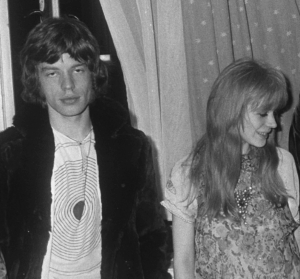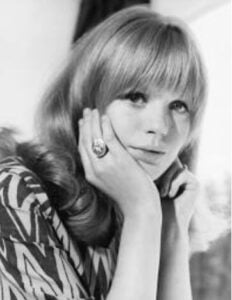
In the 1960s, Marianne Faithfull emerged as one of the most intriguing figures of the British Invasion. With her haunting voice and striking beauty, she became both a star in her own right and a muse to some of the most famous musicians of the era. Yet despite her talent, much of her work was overshadowed by her associations with Mick Jagger, the Rolling Stones, and other rock legends.
Now, more than half a century later, Faithfull’s life and art receive the recognition they deserve. Broken English, a new documentary named after her acclaimed 1979 album, had its world premiere at the Venice Film Festival on August 30. The film celebrates not only her music but also her resilience, creativity, and rebellious spirit.
Marianne Faithfull And Her Music

The documentary shows how Marianne Faithfull broke barriers. Early in her career, she co-wrote “Sister Morphine” with Mick Jagger and Keith Richards, a bold song about addiction that her record label withdrew within days. While the Rolling Stones’ version later became a classic, the film restores credit to Faithfull’s original voice.

Viewers also see new performances of her songs by artists such as Beth Orton, Suki Waterhouse, and Courtney Love. These tributes underline how much influence Faithfull had on generations of musicians, even as her own career was often pushed aside.
Marianne Faithfull’s Turbulent Story

Broken English also revisits the dramatic episodes that made headlines. Marianne Faithfull reflects on the 1967 police raid at Keith Richards’ house, where she became the unwilling center of a scandal. She speaks candidly about her struggles with addiction, mental health, and aging, showing the same honesty that once made her a controversial figure.

The film closes on an emotional note. Tilda Swinton introduces Faithfull’s final recorded performance, a 2018 rendition of “Misunderstanding” with Nick Cave on piano. Her words, “Love is real. Love is here,” leave a lasting message that defines her enduring legacy.
